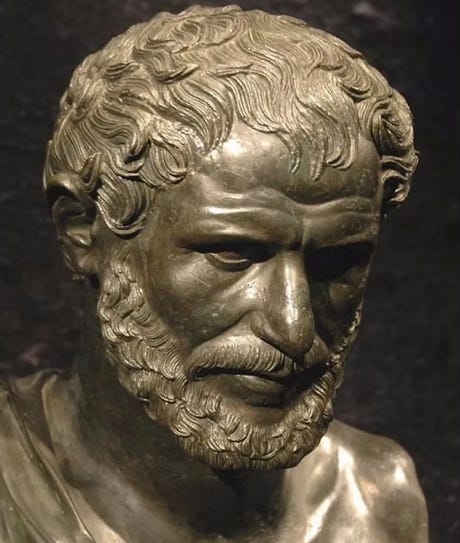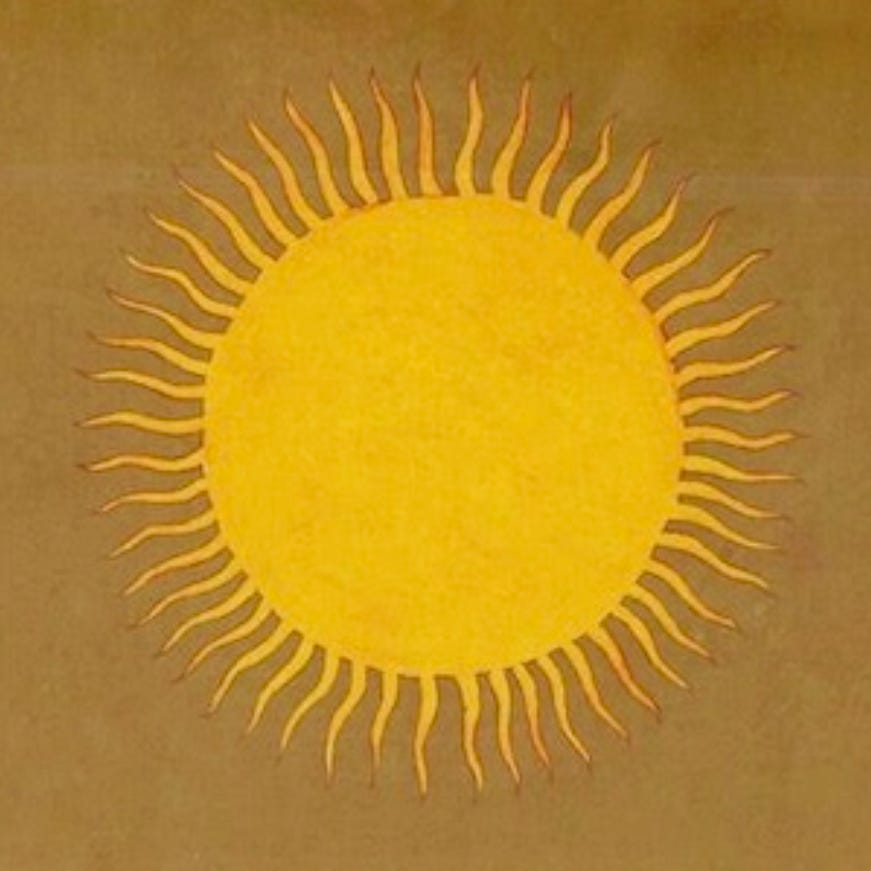Music: Memorial, The Budapest Klezmer Band
The word for character in ancient Greek was ethos, from which we get our word "ethics." Heraklitos, writing at the dawn of Western philosophy, held that a person's 'ethos' is their daimon, or fate. "Ethos anthropos daimon" A man's character is his fate.
Heraclitus
Heraclitus thought that character, the essence of the individual, determines his or her experience; Character, the tone of the individual, resonates with the music of his destiny. It is the flaws of character that are tragic. Viewing destiny in this way, the fates are not outside us, in the heavens, weaving and cutting the threads of our lives. Instead, they are consonant with our character. This consideration is at the root of the worldview that good things happen to good people.
But, as I have suggested above, there seem to be superior forces to one’s character. Here is a Jewish story, a joke actually, on the subject of creating one's destiny or fate and how character, setting goals, and the drive to 'succeed' often means not a whole lot:
(Musical interlude)
Moishe Lipsky was a newly arrived immigrant in New York City from Odessa. He had plenty of friends, but since he arrived during the Depression, and even though he was a very industrious man, it was very difficult for him, for anybody, to find him a job. But, finally, after much searching, his friends found him a job as a shammes (a professional janitor) for a small synagogue on the Lower East Side.
But, when Moishe went for the job interview, he was turned down because he was illiterate and a shammes still had to keep certain records. So, Moishe turned to picking up bottles and scrap and over time, built himself a little business. He was likable and honest and eventually opened himself a little storefront.
After many years, he invested in some tenement buildings with the help of friends and so, in this way, eventually became a major operator in tenement real estate in Manhattan.
One day, a friend of his told him of a tremendous opportunity to buy a complete city block of tenements. Moishe understood the deal, he recognized it as a once-in-a-lifetime opportunity, but, he just didn't have the money for a purchase of this size. So, he went to his local bank and applied for a loan.
Now, Moishe had never borrowed anywhere near the amount of money needed for this transaction, but he was known at the bank, and the loan officer was more than willing to make the loan based on just his reputation.
The loan officer filled out the papers for the loan and gave them to Moishe to sign. Moishe told the man he could not read and asked, "Where do I sign?"
The man pointed it out, and Moishe made an "X" and pushed the papers back to the other man.
Looking at Moishe's signature the loan officer cleared his throat and said, "Mr. Lipsky, you have become one of the largest tenement owners of the Lower East Side and all without knowing how to write your name. Isn't that a miracle? Isn't America a land of opportunity? Just think, in just a few years, you have become a very rich man. It makes me wonder what you would have become if you could read and write?"
"A shammes," replied Moishe.
Nu? So, let me provide a little clarification on what exactly all this could mean. You see, Moishe was a good man and worked hard, but even with these positive qualities, even though he had good character, he would have ended up, if it was up to him, as a janitor, not as one of the richest men on the lower east side.
So, perhaps, the character and the qualities of one life alone are not sufficient either in fact or in explanation. Perhaps there is a quality of fate, a quality of something that comes from outside, from God or the Devil or the environment, that must be taken into account. After all, how many bad people have apparently good luck, and how many good people have apparently bad luck?
So, it seems to me that whether a character is good or bad, it will show good or bad results. as Heraclitus proposes, but only if those qualities are supported by nature, by God, or by fate, as this Jewish story suggests, and, those factors are beyond our control.













Share this post